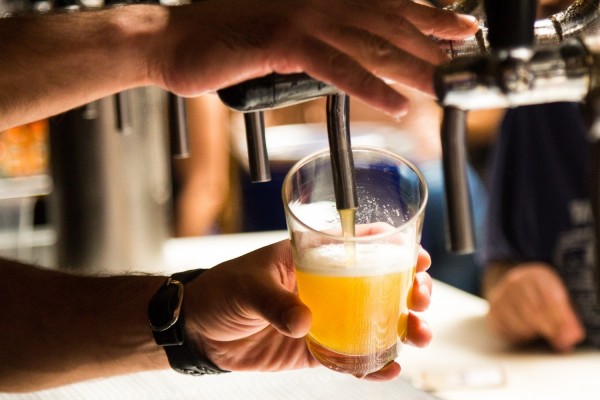Can the Human Body Brew Beer? Here’s What You Need to Know About Auto Brewery Syndrome

One who has auto-brewery syndrome can become very drunk even after drinking just a minimal amount of alcohol.
In October last year, a North Carolina man was pulled over on an allegation of driving drunk. Authorities did not believe him when he told them he had not had any alcohol consumption.
CNN reported that in his late 40s at that time, the man "refused to take a breathalyzer test" and was brought to a hospital where initial findings from his blood alcohol level were 0.2 percent.
The result was roughly 2.5 times the authorized limit and the correspondent of consuming ten alcoholic drinks in just one hour.
Despite the 40-something, swearing hard that he hadn't had anything alcoholic to drink, even the doctors did not believe him.
ALSO READ: Is Your Skin Turning Blue? Here's What You Need to Know
Auto-Brewery Syndrome Diagnosed
Researchers at the Richmond University Medical Center in New York ultimately found that the man was right when he said he did not take any alcoholic drink despite the breathalyzer test result.
The study found that the man was not "downing cocktails or drinks." Instead, yeast was found in his gut, and that was possibly converting carbs in the foods he ate to alcohol. Meaning, the body of the man CNN reported "was brewing beer."
These same results were studied and were presented in research in BMJ Open Gastroenterology. The subject, whose identity unrevealed, had an extraordinarily diagnosed medical occurrence called the auto-brewery syndrome or ABS.
The said condition is also known as "gut fermentation syndrome." Healthline explained the syndrome is also sometimes called "drunkenness disease." It is a rare medical condition that makes one intoxicated or drunk even if he does not drink alcohol.
According to medical experts, ABS takes place when the body turns carbohydrates or starchy foods into alcohol. It can also be quite a challenge to diagnose rare diseases. There are even times when ABS is mistaken for other health or medical conditions.
The ABS Symptoms
Aside from making one drunk even without alcoholic beverage consumption, one who has auto-brewery syndrome can become very drunk after drinking just a minimal amount of beer or any similar drink.
In addition, indications and side effects are akin to those that are experienced when one is slightly drunk or has a hangover from overdrinking.
Among these indications include disorientation, red skin, headache, vomiting or dizziness, dry mouth, dehydration, fatigue, mood swings, and frequent burping, among others.
Aside from the symptoms, the auto-brewery syndrome can result in or worsen other occurrences, too, like irritable bowel syndrome, chronic fatigue syndrome, and depression and anxiety.
DON'T MISS THIS: Is Your Skin Turning Blue? Here's What You Need to Know
Who are at Risk? And How can ABS be Treated?
Medical research indicated that both children and adults could acquire auto-brewery syndrome. Indications and symptoms are the same in both demographics.
Typically, ABS is a complication of another illness, imbalance, or contagion in a human body. One cannot be born with this kind of disorder.
Nevertheless, he may be born with or acquire another condition that may trigger ABS. For instance, in adults, if his gut has too much yeast, it may lead to "Crohn's disease." This then can set off to ABS.
In some individuals, liver problems may lead to ABS. In these occurrences, the liver cannot clear out alcohol quickly enough. Even a small amount of liquor made by yeast in the gut may lead to symptoms.
Auto-brewery syndrome is treatable. The doctor may recommend a reduction of carbs in an individual's regular diet.
More so, the doctor may prescribe the patient antifungal drugs, too. The medications are useful to treat fungal infections that may lead to problems in the gut. Relatively, a patient might need to take the drugs for three straight weeks or even longer.
IN CASE YOU MISSED THIS: Is Your Skin Turning Blue? Here's What You Need to Know
Jul 11, 2020 08:00 AM EDT





